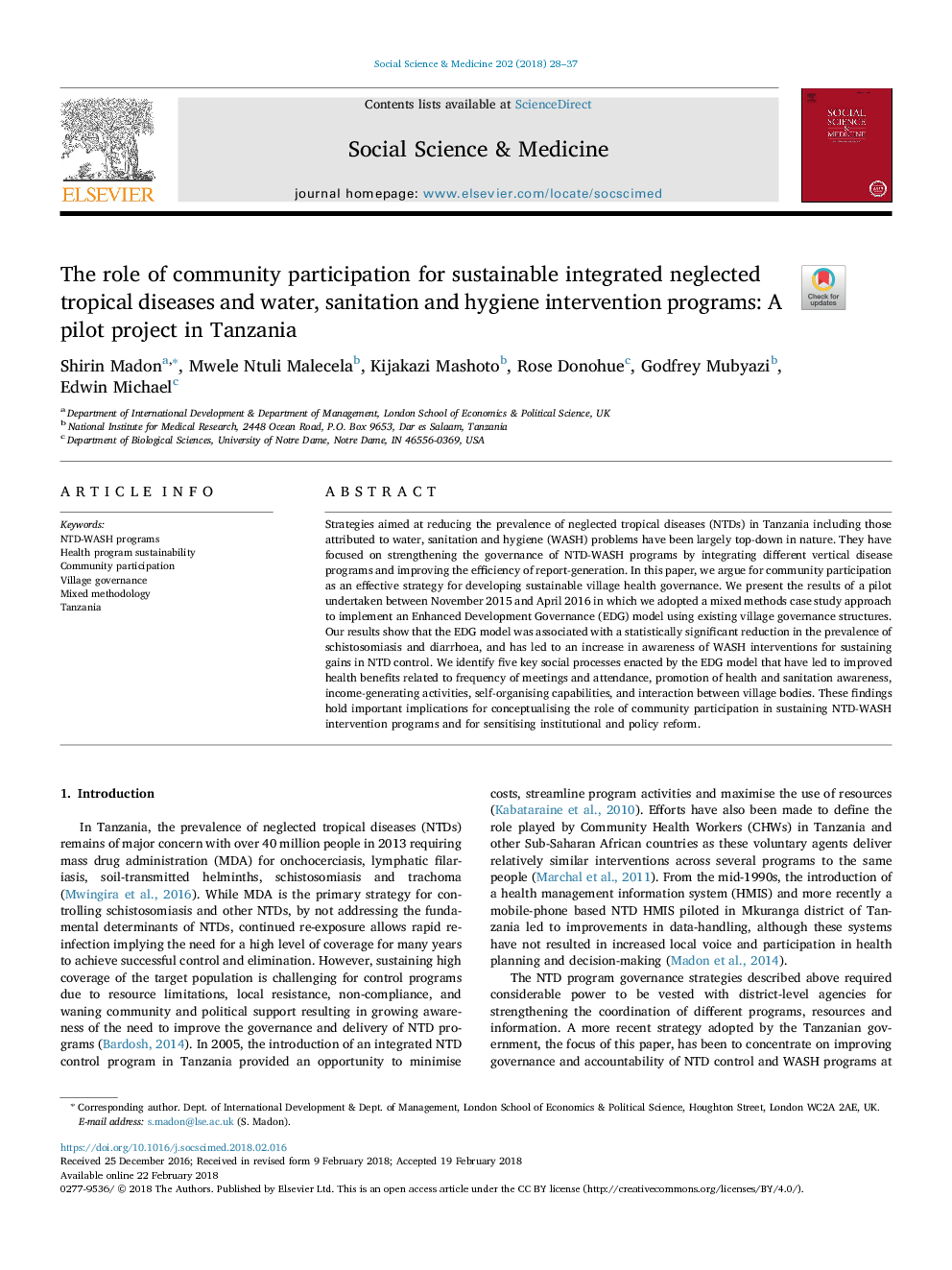ترجمه فارسی عنوان مقاله
نقش مشارکت جامعه در یکپارچگی بیماری های گرمسیری و برنامه های مداخله بهداشتی و بهداشتی: یک پروژه آزمایشی در تانزانیا
عنوان انگلیسی
The role of community participation for sustainable integrated neglected tropical diseases and water, sanitation and hygiene intervention programs: A pilot project in Tanzania
| کد مقاله | سال انتشار | تعداد صفحات مقاله انگلیسی |
|---|---|---|
| 158089 | 2018 | 10 صفحه PDF |
منبع

Publisher : Elsevier - Science Direct (الزویر - ساینس دایرکت)
Journal : Social Science & Medicine, Volume 202, April 2018, Pages 28-37

